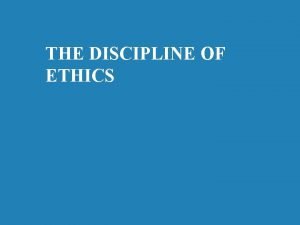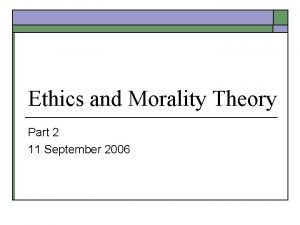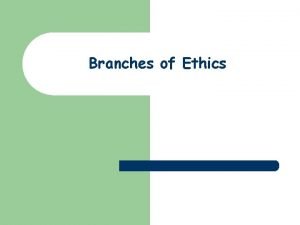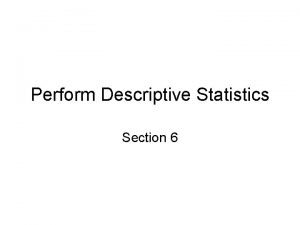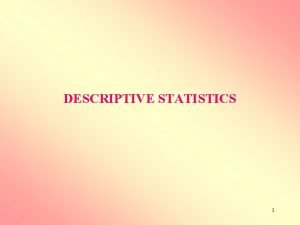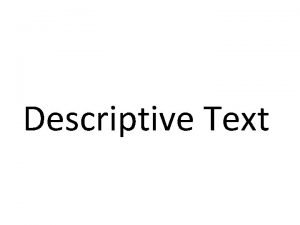ENVIRONMENTAL ETHICS UNIT 1 NATURE OF ETHICS DESCRIPTIVE






- Slides: 6


ENVIRONMENTAL ETHICS

UNIT 1 : NATURE OF ETHICS • DESCRIPTIVE ETHICS, ANTHROPOLOGY AND PSYCHOLOGY • NORMATIVE ETHICS : PHILOSOPHY AND RELIGION • META ETHICS

NATURE OF ETHICS • DEFINITION OF ETHICS : • The word ‘Ethics’ is derived from the Greek adjective ‘ethica’. ‘Ethos’ means habits. Ethics is also called ‘Moral Philosophy’. • Ethics’ means the science of customs or habits men. It is the science of the habitual conduct of men. Habits are expression of settled disposition of the will or character. . • Ethics is the science of character and conduct. . • Ethics is the science of rightness and wrongness of conduct. Conduct is purposive action, which involves choice and will. It the expression of character which is a settled habit of will.

DEFINITION OF ETHICS : • Ethics is science of the Highest Good. It is the science of morality. • It is concerned with evaluation of conduct with reference to an ideal. It seeks to determine the supreme ideal involved human conduct. It seeks to teach us how we can pass correct moral judgments upon human conduct, consider it as right or wrong, with reference to the supreme ideal of human life. • Mackenzie defines Ethics as “the study of what is right or good in human conduct” or the “science of the ideal involved in human life”.

THE NATURE OF ETHICS • ETHICS A NORMATIVE SCIENCE: • It deals with human conduct together with the inner volitions and their motives systematically. • It is a science in so far as it depends upon observation, classification, and explanation of human conduct with reference to an ideal. • It is concerned with judgment upon conduct, its rightness or wrongness. • It passes judgment of value upon human actions with reference to the moral ideal. It is not concerned with judgments of fact, but with judgments of value. Judgments of fact are judgments of what is. Judgments of value are judgments of what ought to be.
